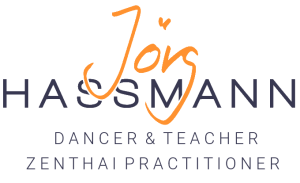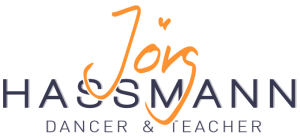Teaching and Learning
Learning is improvising on a meta level: Having the choice how to learn and making the decisions, which support it.
Teaching
At the beginning of a workshop I often say things like: „The first rule in contact improvisation is to take care of yourself. That sounds easy but very often it is not. Use this workshop as a place to practice being honest with yourself. If you feel something is not good for you, don’t do it. Hold in, make a pause, or if necesary leave your partner, whatever – but don’t explain why, then you will be too late. Most discomforts or fears start pretty small. We notice them very early in our physical or emotional body, much before we understand on a mind level what’s going on. But we already know that something is not good for us without knowing excactly what is is. So, practice being on time with your reactions! Trust your body.
On the other hand you might find something very inspiring, which is leading away from the proposed excersise. Then go for it as long as it feels important and join back into the group focus when you are ready. You are not here to please me. You are here to learn. And I think I am slowly getting better at meaning what I say “
The words are wiser than I am, I know. At the beginning of a workshop these are only words. If they are real, if I can really create an athmosphere where they become true is another question. It is very challenging to see participants doing obviously something different than I proposed. Do I actually trust those people in their decisions? Do I correct them or do I put my offer again into the space because I think they do it wrong? They didn’t listen to me. They misunderstood. Am I really ok with people going for their own interests?
I want that participants trust me and my words, but do I trust them in their own choices? I guess a good learning setting is based on trust. Participants trust me and they trust their own sensations, their own curiosity, their own choices. I need to trust that they really want to learn.
How often do I sabbotage my initial proposals? It is a continous learning process for me. Noticing my instant reactions to people’s choices that go against my proposals. I need to have enough inner trust and calmness, inner space to not react automatically. I need to inhibit my automatic responses and take another breath, observing more carefully what is happening, reminding me that I might be wrong with my judgement „You didn’t listen, you are not trusting the depth of my suggestion, you are avoiding to go beyond your habits…“
Learning as a teacher
Teaching is my main teacher. I developed most of my knowledge from observing my own body and my own way of dancing and communicating with my dance partner. I analyse it and create excercises from it. In this process I try to find out, what I actually do and what is necessary as a preparation for other people’s bodies to be able to grasp what I propose. The first attempt of teaching an excercise starts with assumptions. Then I see what people do with the information I gave. And usually at least some (if not most) of the participants don’t really get what I was trying to convey. Why? What was the misunderstanding? What was the missing link? New assumptions, new try. Seeing what happens, adjusting, developing, failing and succeeding? Failing can also mean finding something else. Finding new questiones and ideas. I guess science works rather similar.
But even if an excercise worked more or less perfectly it doesn’t mean that it will work again with another group or in a different setting. I am never on the save side. Thinking that I got it makes it more likely that it won’t work the next time. There are so many details and different levels, which can help or sabbotage my idea. The main thing seems to be if I am able to honestly connect to what I try to explain. How do I find my inner space to connect to what I want to share, while I have to take care of so many other things. I might need to prepare the music for the excercise. Are there other needs of the participants that make it hard for them to follow my thoughts or explanations? Do they need time to reflect the previous excercise or just to digest the information? Do they need to wake up more to be able to listen or do they need to calm down? Do they need to pee? Is it to warm or to cold in the space? Is the floor good for the excercise? And eventually – How long do I demonstrate? When do I explain with, when without words? Is the way I speak supporting the athmosphere that the excercise needs? How incredible complex! It is remarkable that I don’t always fail.
Learning as a student
I wish from my students that they know how they learn the best and how to take care of it as good as possible in the frame that I give. I’d like to create a frame where they have the freedom to adjust my proposals in a way that they learn the most effeciently. I wish that different people deal differently with the information that I give. To do so everyone needs to understand how he or she learns, noticing what helps and what doesn’t. Sometimes I manage to give some ideas for this. „Notice on which side you are! Are you a person with a lower or a higher body tone? Are you more familiar with leading or following? Are you eager to get things right? Or do you change the rules as soon as it becomes difficult or boring? Do you push through or do you tend to give up easily? There are many other polarities. Depending on my personality or my current state I am more on one side or the other. When is it good to encourage myself to try more of the less familiar pole? I assume that we as individuals are able to adjust rules in a way that they create a good challenge. If the challenge is too big, we get scared. That doesn’t help the learning process. If we are underchallenged we loose interest or we go on automatic pilot where we might have a good time but where we don’t learn anything (which can also be a good decision sometimes).
Learning is improvising on a meta level. Having the choice how to learn and making the decisions, which support it.
Especially in mixed level groups I often put the following wish into the space: ‘Trust that you can learn something with everyone in this group. It just might not be what I proposed or what you’d like to learn in an excercise. But maybe there is something else to learn, and maybe that is even more substantial. Staying present, just connecting, letting go of plans, saying no, saying yes, setting boundaries, just focussing that it feels good for the body, pausing … there can be many important things to be learned…’
‘Happy failing!’ – I say this a lot. If we don’t allow us to fail, we don’t give the space for learning. If we only want to learn what we can already do we don’t really learn. Failing with a light heart and a smile, trying again. It needs trust, again trust …
A personal note about learning
Reading my own text I realize that the base for my teaching is the idea that people want to learn, when they do a workshop with me. And I wonder if this is actually unnegotiable. Is it really necessary that people want to learn when they join my work? Can it be enough to just desire having a good time?
I hear myself loudly thinking that my workshops are not a wellness program. ‘If you are looking for wellness that’s fine, but please don’t come to my workshops!’ That’s where I am right now. Maybe I will become more open, who knows.
In my workshops I want that people learn and dance and that they are satisfied in some ways. We are born to learn. We start as learning machines: babies and small children – they are constantly learning and all in all they love it. They can’t live without it. They are ‘learning junkies’ and it makes them strong and healthy. Learning includes frustration and boredom. But in the long run it is – in my experience – soo enlivening, so rewarding, it creates joy and makes us grow. Why should we not want to learn? Maybe that’s beyong my imagination.
Or could it be just about connecting? Is that also learning? Maybe a good question…

